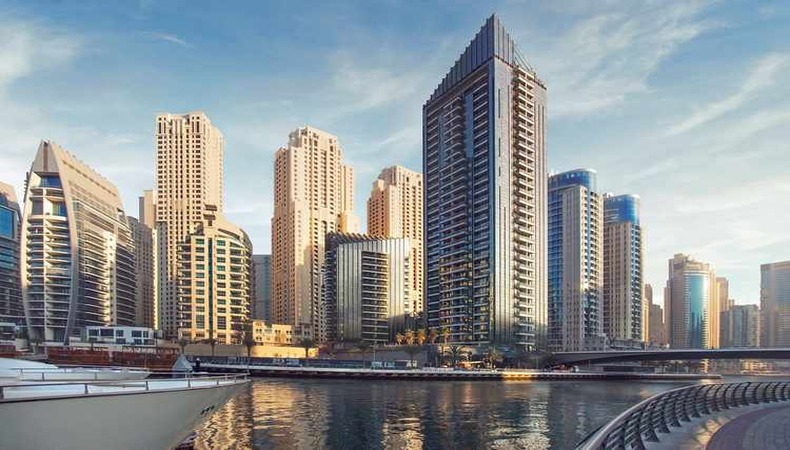MENA Can Achieve Sustainability Through Construction

MENA – the Middle East and North Africa is witnessing a construction boom, with whole new cities rising across the region. Countries in the GCC are coming together to invest $2 trillion in construction projects by 2035.
Ushering in a new era of sustainability and emissions-free environments, the region can pioneer in the development and use of sustainable technologies and techniques. This could help achieve net-zero emissions of greenhouse gases.
MENA can seize this opportunity and embark on a green world. But doing so requires dedication and focus on technology investments and upgrading local capabilities, among other things. The region can become a global leader in the built environment space, which will come with both opportunities and challenges.
MENA Stepping Up Renewable Energy
According to a PwC report “A sustainable built environment Strategy & Middle East”, MENA countries have considerable room to address sustainability issues. Less than five percent of the region’s energy supply currently comes from renewable energy sources. Governments in the region are stepping up with construction of solar and wind energy installations.
Saudi Arabia aims for a renewable energy contribution of 50 percent by 2030. Other Gulf countries are aiming 25 to 30 percent. The report states that the GCC region has a substantial renewable energy cost advantage over other regions – six of the 10 existing lowest-cost solar projects globally are in GCC.
Moreover, the $2 trillion investment covers projects in GCC countries. The Kingdom of Saudi Arabia has pledged over $186.6 billion to meet net-zero emissions targets by 2060, Oman targets 2050 with plans in the space of low-carbon and green hydrogen. Likewise, Egypt wants to reduce green house gases by 2030. Experts say investment will drive innovation in sustainability and take the region to a whole new level of global leadership for the built environment.
Keep Reading
French Arrest Warrant Out for Syria President, Interpol Next
Intercity Bus Service to Connect 200 Cities Across Saudi Arabia
Reducing Emissions, Sustainability
Sustainability means increasing renewable power generation, optimizing consumption, including reducing emissions from mobility. Governments should strengthen climate resilience and responsiveness to climate risks, reduce noise pollution, and conserve the natural ecosystem.
The report says that achieving these goals would make a substantial difference in moving closer to achieving several of the UN Sustainable Development Goals (SDGs) – clean water and energy, as well as sustainable cities.
These are all interrelated, for example reducing emissions from mobility can help improve the air quality and also reduce noise pollution. And there’s embracing technology and innovation. Technologies can help turn the larger paradigm shift into an enduring practical approach to creating a sustainable built environment, and substantial reduction in emissions.




